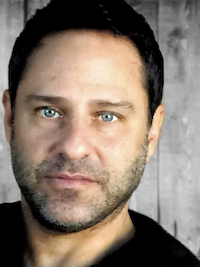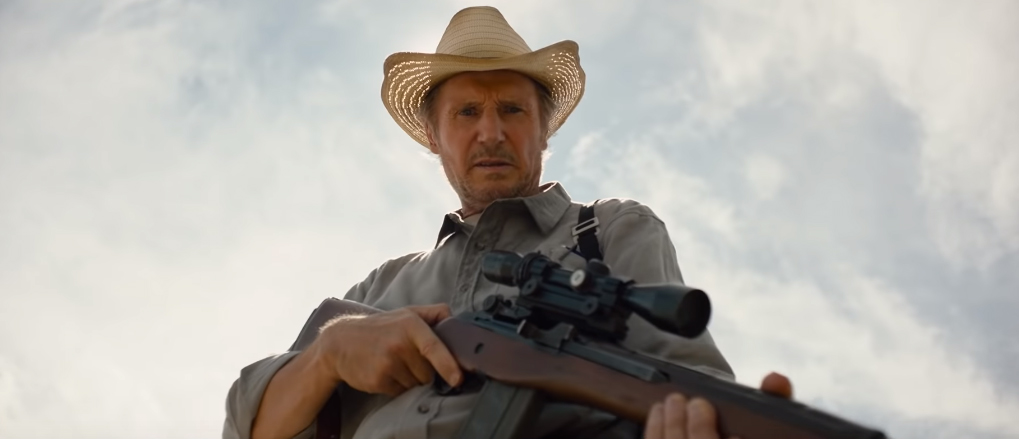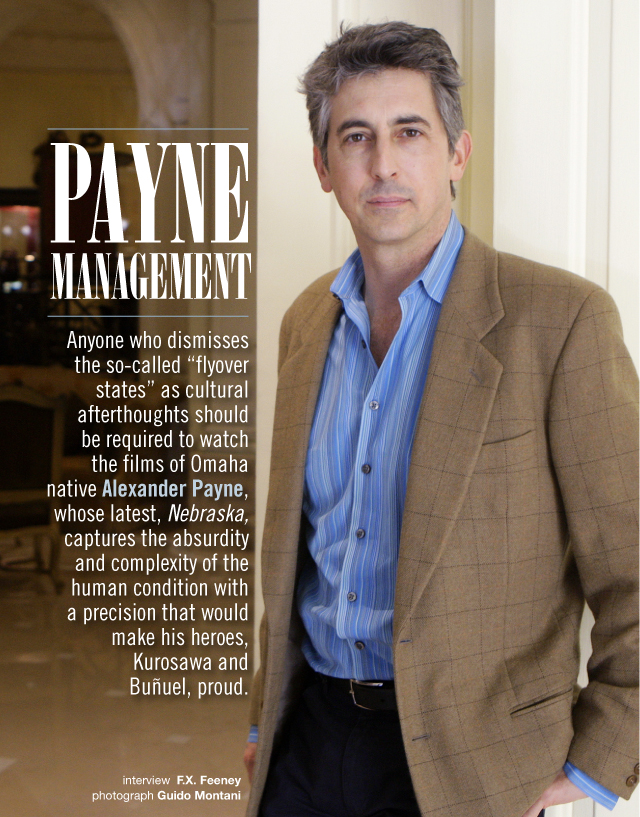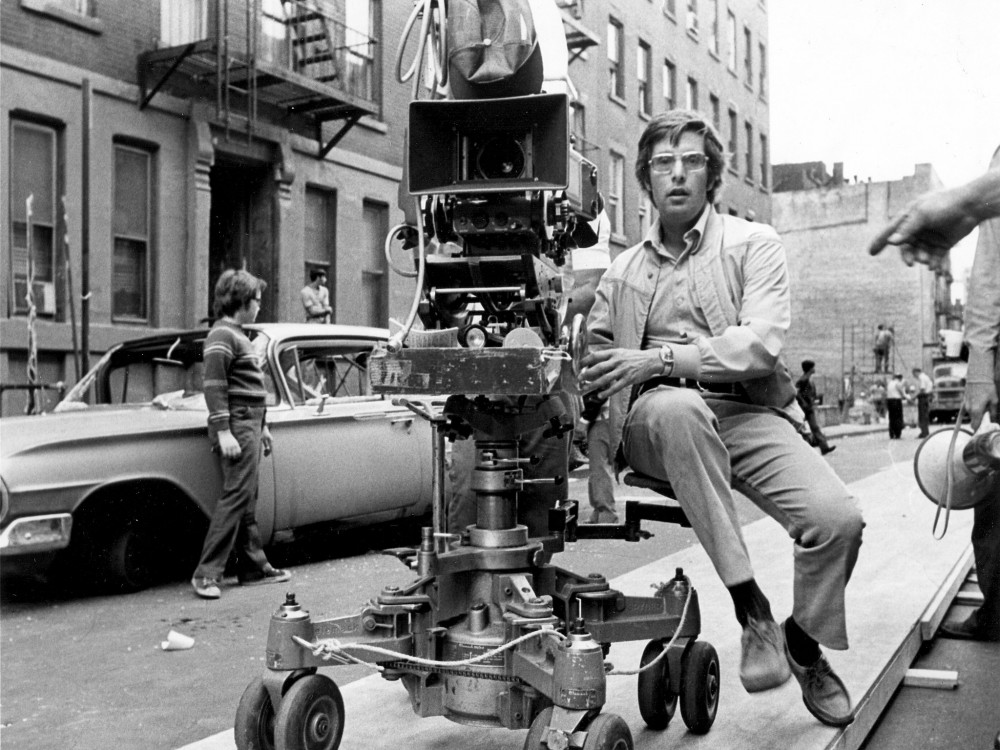
Your new film, The Marksman, opened at #1 this past weekend. Was this your first screenplay sale? The first produced? Yes, this was my first screenplay sale and first produced. I have another optioned script that was about to be purchased and was heading into production just before the pandemic started. And I have a couple of others optioned and/or in development.
How did it come about? As far as the story, my writing partner Chris Charles and I became interested in the region where The Markman’s narrative begins, the Southwest, and the modern Western vibe that region was conjuring up for us. Then we began to imagine interesting characters who might inhabit this region. We latched onto the idea of a broken man encountering a young boy who is in a terrible predicament, then also recognized that the structure of a road movie would provide an effective mechanism for the character and relationship growth we wanted to explore. By that I mean, we wanted to go very deeply into a character’s healing by way of the journey and have that be prominent. But we also knew that if the characters were being pursued, it would give the story the stakes and goal of survival, which could make it more compelling than a straight-up drama.
You received a first place award in Fade In’s screenplay competition in 1998 for your script “Easy Out.” Tell us about that screenplay, and what happened to it after you won the award? That screenplay, written by Dean Geller and myself, was about four middle-aged petty criminals who were never very good at crime and who were really down on their luck, but who came up with a rather brilliant idea of how to successfully rob a casino riverboat. The heist was a sort of Hail Mary to try to win a game of life that they were definitely losing. They were very charming, very sympathetic characters. Of course, much went wrong once they put their plan in motion. It’s an underdog story and quite fun and very, very funny — great ending, too. Kind of a workingman’s Ocean’s-type heist movie.
After winning the award, we actually free-optioned that script to a prominent producer who had made one of the Speed films. When it didn’t get traction right away, it was simply [time to] “grab the pen and get back to work on the next script,” because I understood success was dependent on both continuing to produce work and getting better (hopefully) at screenwriting with each script. Talking about “Easy Out” makes me want to dust it off again, actually. It’s a very fun script.
How else did receiving the Fade In award impact your screenwriting career? Mostly the award gave us motivation and encouragement, which has huge value when starting out. It helps to believe that you are at least decent at writing to stay positive when you begin your career, and recognition from a reputable contest was a nice little lighthouse in the fog saying, “Yes, keep coming this way. You’re heading in the right direction.” It helped on query letters, too.
It’s been more than twenty years since your Fade In Award. What have you been doing over the past two decades? In terms of work and career stuff, I’ve been writing and writing and writing and working very hard to get projects off the ground. The Marksman took a legit ten years to happen. But while doing that I also, early on, did a stint in advertising and commercials as a writer and a composer, worked a little in TV, began teaching at Columbia College Chicago (where I continue to teach) and published a bunch of books. I also have a parallel career in music as a recording artist and producer/writer, which started earlier than my writing career did, so I have been quite busy.
Did you have any input on The Marksman during production? How was your relationship with director Robert Lorenz and star Liam Neeson? The script was locked and loaded well before production so when I was on set during filming, my role was simply to float around with a big smile on my face watching Rob and Liam and Jacob Perez and Mark Patten (the director of photography) and everyone else do all of their darn good work.
Robert Lorenz, my writing partner Chris Charles and I all had the same vision for the film, so our collaboration was wonderful. But that’s because we all knew what the film should be. And Rob is a brilliant director and producer. The guy has three Oscar nods and his list of credits is filled with so many of the best films of the last twenty years that it’s awe-inspiring. Working with Rob was excellent. All writers should have such an experience.
As for Liam, I adore him. He’s a prince — a real prince. He’s also a Zeus or a Priest Vallon or a lovely, “Love Actually kind of all-around” stepfather, or anything else he chooses to become. Watching him work was a friggin’ master class for the ages. I’ve been a huge fan forever. Schindler’s List, Rob Roy, Star Wars, Gangs of New York, Kinsey, Love Actually — these are some of my favorite movies and he slays in every one of them. Just slays. He is one of the best, ever. I’ve thought that for a very long time. I can think of two other actors that he shares that with for me: Marlon Brando and Daniel Day Lewis. And I have a very fun way of explaining why I am right about this. [Laughs] But watching up close, you see it in a way that is very powerful. Liam is the best.
What is your writing process? I start with something that hooks me — a character, a relationship, a situation, a place, something engaging — and figure out a basic story and throw that into a short paragraph. That paragraph leads to a few paragraphs in which the narrative and main theme come more clearly into focus and they need to interest me and move me emotionally in some way. That then gets unpacked in about a page, which clarifies details in the beginning and end and lays out the major events that will take place in the middle of the story. Then those paragraphs get dusted off to see what’s hiding, and there I discover goodies like cool subplots, or setups for later callbacks, or motifs, or complications that must get resolved later in the story — all kinds of story jewels waiting to be discovered. This process can take a week, or it can take a day. I always step away the moment I feel the excitement drop below seventy-seven percent (I actually thought hard about that number) [laughs] because this means I am tired, or I’ve tasted the dish too many times and I need to let it and my taste buds breathe, or I need to allow my subconscious time to sort some things out. But I go back the moment I feel fresh again.
Once I have that, I start a step outline that further unpacks the story in about fifteen pages, each scene getting its own paragraph. And that’s where the film comes to life. What’s helpful for me doing it this way is that I can watch the entire movie in fifteen pages and keep tweaking until it’s working well for me. Writing the actual script is then a combination of building from the blueprint and new discovery … because many things still get discovered once we start writing. And those discoveries are really exciting because they are in service of a story I’ve already workshopped a ton, so the tail doesn’t wag the dog. Those discoveries simply polish and enhance the story.
Through all of this, by the way, the story needs to be evaluated, so stepping away and coming back for a fresh look is important. If something needs to change, big or small, it will get changed, because we are also learning about the story now. It starts revealing things to us that we couldn’t see.
The scriptwriting process is where the craft of scene writing is leading the way. These are finer tools doing more detailed work. And since a good movie is, in my opinion, a series of individual scenes (which must, on their own, entertain) linked together to tell a compelling story that communicates a theme, getting the scenes to work very well becomes the essential, primary task of that first draft. There is a lot of writing, rewriting, sharing with my partner, reading scenes out loud to each other, and more rewriting. Slowly, scenes take shape, chronologically, and the first draft gets done. Then the process of evaluating that draft begins. Hopefully, improving the script requires only improving the scenes. Sometimes, improving the script means both working on scenes and going back to that outline.
Working with my writing partner Chris, we will often divide up scenes, go off alone with them, then bring them back to each other for tweaking. It kind of never ends — until it does, and you get to a point where you feel like it’s working very well and further tweaking of that particular version of the script doesn’t really make it better. And that’s a good place from which to share it.
The Marksman is an action thriller. What are the secrets to writing a successful screenplay in that genre? What are the necessary elements? For me, it still always starts with a compelling character with an important goal. Now there are a handful of qualities that absolutely exist in all of our favorite characters, and you need to understand them. But, beyond that, to keep it simple, if you have a compelling character whose goal really matters to that character and the audience (read: “universal” and “high stakes”), and then you throw some pretty formidable obstacles in that character’s way, you have the makings of a good story. If you accept that premise, then you can tell your good story in a situation that lends itself to thrilling moments and action-filled sequences. In 300 or John Wick or Speed or Die Hard, you can see how, in every one of those stories, we very much like the main characters and root for them to achieve their rather important goals. Think for a moment about how simple that actually is. A guy wants to save his wife and her colleagues from some deadly terrorists that have them trapped in Nakatomi Plaza. A king wants to protect the people of his city-state of Sparta from a massive Persian invasion. It’s the same for ensemble action thrillers, though it might be a shared goal — e.g., The Avengers, Independence Day — or for less straightforward thriller-genre films. It’s the same. It’s the same for any movie. Are there some other things you need to do and understand? Subplots? Other characters in archetypal roles in the narrative? A third act that does what it needs to do? Other narrative tools? Yes, of course. And do action thrillers need to have some action? Yes. But nail that basic stuff and you’re way more than halfway there — the most important half.
Remember, too, that there are variations within this genre. I personally sometimes like to go deeper into the characters than some straight-up thriller genre stories do, and many of my favorite films do that and are able to both entertain and also explore character in a deep, moving way. Blood Diamond, No Country for Old Men, Gravity — are these considered action thrillers? They’re thrilling to me. But they are deeply moving, too.
Do you think the market for original, non-franchise screenplays has changed any over the past twenty years? Sure. It has. It’s harder to get these films made. When I first started, any and all kinds of movies were getting made by studios in all genres, and at pretty healthy budgets. There were definitely, if memory serves, a lot more spec script sales. You would read about them all in wonder. And there were plenty of good-sized independently financed movies. It was a very different game. I am not at all an expert, but it seems that a handful of things happened to get us to where we are, which includes mergers and a contraction of how many companies have money to make movies, and what the best use of that money is for a company. So while we have awesome franchise films now, I think the economics of the midbudget original content became restrictive. At least, that’s how it seems to me.
What advice do you have for aspiring screenwriters? What are the keys to success in the 2020s? First, I hope you enjoy it. If you really enjoy it, that will help you do it enough to get good at it — which is kind of the key. As Paul Newman’s character said in The Color of Money, and I’m paraphrasing, “If you’re excellent at something, then success is attainable, perhaps even easy.” So my advice, in terms of success, is: work hard and improve your craft and produce something worth making and watching. The moviemaking world opens its arms to great content. It is always hungry for great content. So write something you’d actually really like to watch. Be supportive, congratulatory, but honest with yourself as you evaluate your work. And remember anything can become good. It might require time, which you may or may not ultimately want to give. It may require your script evolving very significantly to work as a film. But your little kernel of inspiration is something to cherish. It’s a beautiful thing. I’ll tell you something that is true for me: I have loved almost every minute of time I’ve spent writing. And that’s really what has kept me doing it.
A more specific piece of advice that is useful for people starting out is that good stories are simple. Tell a simple story; do it amazingly well. Sit some people down and tell them your story in a few minutes around a table or a campfire or in a class, and if you can wow them with that, you’re on the right track. I also believe that striving for a healthy, enjoyable life outside of work, something filled with all the necessary ingredients for keeping a hop in your step, will only support your endeavors toward achieving career success, because pursuing a career in the arts sometimes requires you to trust and stay hopeful. Oh, and good luck. I’m rooting for you.




